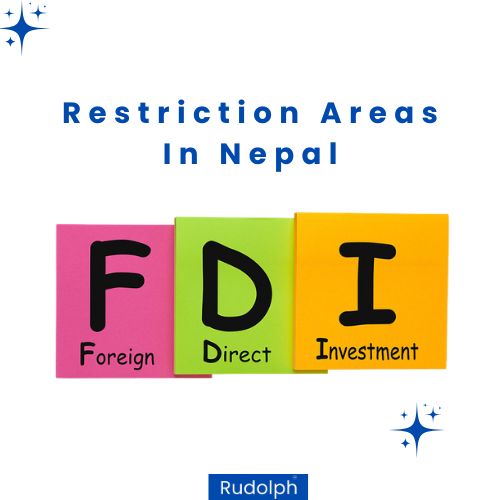FAQs on FDI in Nepal
March 3, 2023

What are the key acts/laws concerning FDI in Nepal?
- Foreign Investment and Technology Transfer Act 2019
- Public-Private Partnership and Investment Act 2019
- Industrial Enterprises Act
Are foreign investors allowed to own a company in Nepal?
Yes. A foreign investor can own a company based on his/her equity investment. The ceiling of share ownership differs depending on the sector s/he wants to invest in.
What are the visa provisions for foreign investor to reside in Nepal?
As per clause 52 of the Public-Private Partnership and Investment Act 2019, a non-tourist visa shall be provided for 6 months for foreign citizens to study, research and survey any approved foreign investment. Similarly, the foreign investor or one authorized representative and their family members shall be provided business visas to stay as long as investments continue in Nepal. Foreign employees of the project acquiring labour permits shall also be allowed to stay during their period of investment in Nepal.
What are the corporate income tax rates in Nepal?
Corporate tax rates in Nepal depends upon the nature of the business entity and generally ranges from 25-30%. The normal rate for entities is 25%; rates for life insurance companies is also 25%, but rates for banks and financial institutions, general insurance, and enterprises involved in the petroleum business is 30%. Special industries, enterprises operating roads, bridges, railways hydropower stations, transmission lines, etc. on a BOOT basis are given a special rate of 20%.
What is the legal framework that guarantees project security in Nepal?
To promote foreign direct investment (FDI) and reduce investment risks, the Government of Nepal approved the Hedge Fund Regulations 2019 on February 25, 2019. Similarly, the Public-Private Partnership and Investment Act 2019 has provisions to establish a Viability Gap Fund (VGF) for priority sector projects.
What type of projects are covered by the Hedge Fund Regulations 2019?
- Hydropower projects having a capacity of 100 MW or more
- Transmission lines greater than 30 Km % 200 KVA
- Railways longer than 10 Km and metro or monorail construction
- Fast track constructions longer than 50 Km
- Other projects specified by the Government of Nepal
What are the provisions for avoiding dual taxation in Nepal?
The Government of Nepal has signed different treaties and agreements to avoid dual taxation. For instance, Nepal has signed BIPPAA with five and DTAA with eleven countries.
Can a foreign investor seek loans for project financing through Nepali banks and financial institutions?
In practice, the foreign investor seeks loan from foreign institutions, namely bank and financial institution (BFIs) or multi-lateral lending agencies. Foreign BFIs can form consortiums with Nepali BFIs in such circumstances to finance projects in Nepal.
Does IBN provide visa facilitation for investors?
Yes. Based on clause 52 of PPPIA 2019, IBN shall facilitate foreign investors with visas in coordination with the Department of Immigration (DoI).
What is the provision to settle legal disputes between a native and a foreign investor?
As per clause 65 of PPPIA 2019, the parties shall first try to resolve the dispute through mutual discussion or negotiation. If unable to do so, the dispute can then be resolved through negotiations by the IBN office. In case of failure to resolve the dispute through negotiation through the IBN office, parties can refer to arbitration proceedings as mentioned in the agreement. In the absence of arbitration proceedings being mentioned in the agreement, the dispute shall be settled under the arbitration laws of Nepal. Unless the disputing parties agree otherwise, the settlement of any dispute arising from any foreign investment shall be conducted through arbitration under prevailing regulations and proceedings of the United Nations Commission on International Trade Law (UNCITAL)
What is the legal framework for ensuring equal treatment for investors in Nepal?
As per clause 45 and sub-clause (5) of the Public-Private Partnership and Investment Act 2019, foreign investment projects shall be treated equally as any domestic industry in Nepal.
Please email us at hello@rudolphservice.com for relative more information.
Sources: Nepal Investment Board
Sweat Equity Shares and ESOPs : New amendment for Employee Incentives in Nepal
January 22, 2025
 Read More
Read More 



